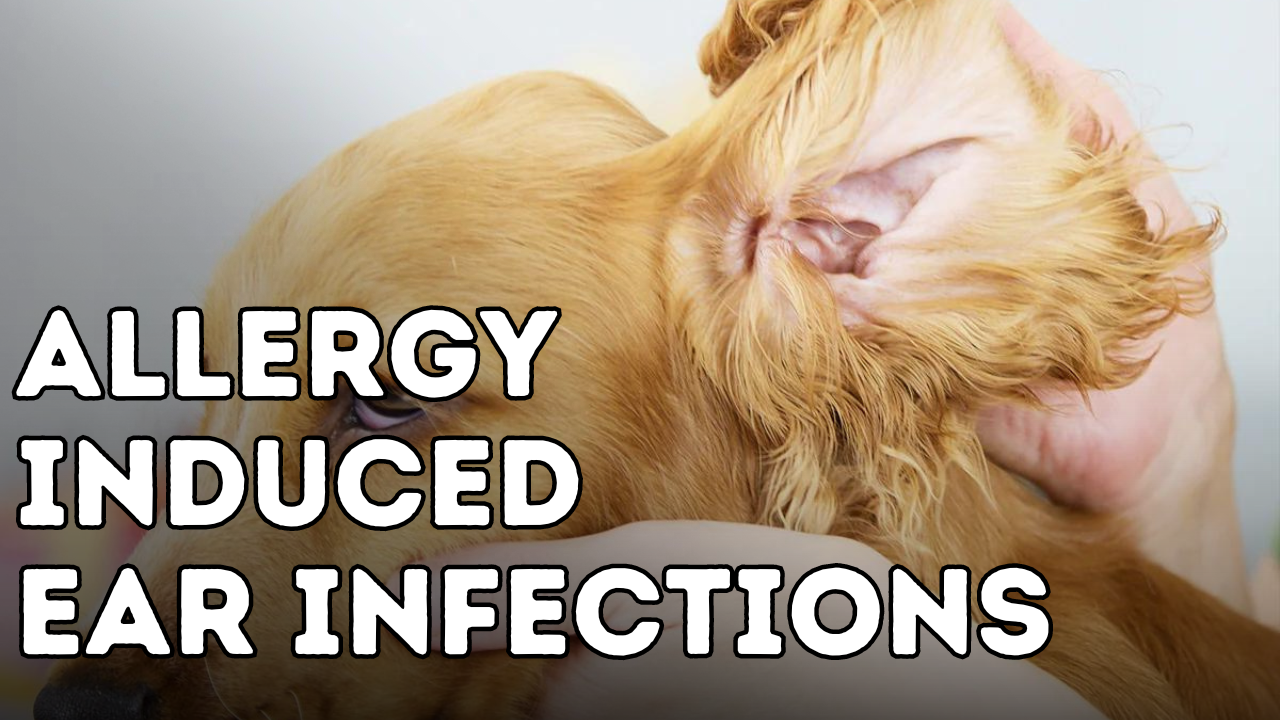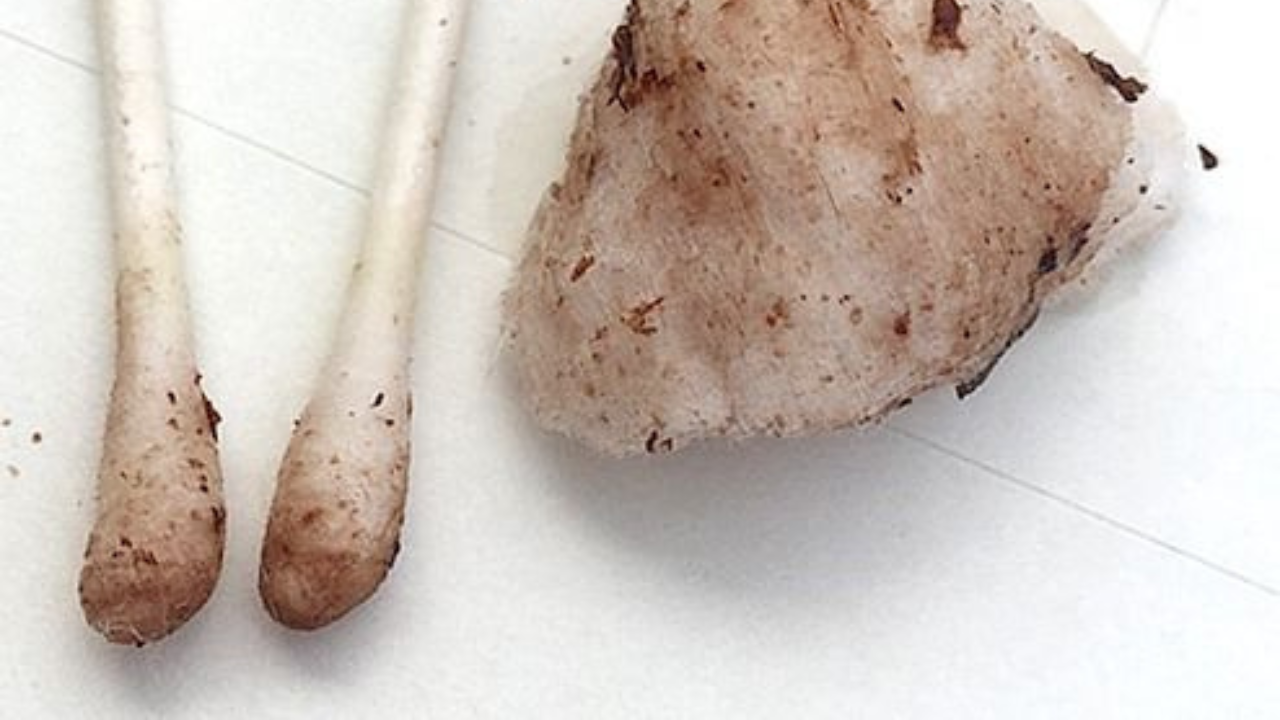How to Treat Allergy Induced Ear Infections

Allergies… itching… recurring ear infections. They plague way too many dogs 🙁
I suspect that many have suggested: “Try the Omega 3 Fatty Acids, like Fish oil, for your dog…"
But this doesn’t always help, and Krill may be even more effective to help STOP the scratching/recurring infections…


Allergy-Induced Ear Infections in Dogs
Hello, I’m Dr. Andrew Jones, and today I want to talk about a common issue many of our beloved dogs face—ear infections triggered by allergies. This condition is not only painful but also tends to recur, causing much distress for your furry friends. Let’s break down what causes these ear infections, the symptoms to watch for, and how you can both treat and prevent them effectively.
What Causes Allergy-Induced Ear Infections?
Allergies, whether to fleas, food, or environmental factors like molds, pollens, and dander, are the most common causes of allergic otitis. These allergies can lead to the skin barrier breaking down and increased wax production in the ear canal. This creates a perfect environment for normal yeast and bacteria to overgrow, allowing more severe strains of bacteria to thrive. The result? Inflammation, pain, and discharge from your dog’s ear.
Dogs with seasonal allergies often get ear infections during the same season each year, while dogs with food allergies or non-seasonal environmental allergies may experience them all year round. Chronic inflammation from repeated ear infections can cause tissue scarring, making treatment even harder because medications have difficulty reaching deeper parts of the ear canal.
Symptoms of Allergy-Induced Ear Infections
The symptoms of allergic otitis are similar to those of otitis externa, but they tend to recur with allergies. Watch for these signs:
- Shaking the head
- Scratching at the ears
- Redness to the ear flap or entrance to the ear canal
- Discharge from the ear canal
- Pain when the ear is touched
- Thickening of the ear canal
- Rubbing the face or ear on the ground or furniture
- Excessive paw licking (a general allergy sign)
- Itching or licking other parts of the body (a general allergy sign)
In severe cases, if the eardrum ruptures, the infection can spread to the middle and inner ear, causing symptoms such as head tilt, abnormal walking, circling, falling over, or pain when eating or opening the mouth.
How to Treat and Prevent Allergy-Induced Ear Infections

Treat the Recurring Ear Infection
- Apple Cider Vinegar (ACV): ACV is naturally antibacterial and antifungal, making it effective for most ear infections. I recommend a solution of 80% ACV and 20% warm green tea. Apply 5-10 drops twice daily for 7-10 days.
- Sweet Almond Oil and Lavender Oil: When the ears are very inflamed and ACV would be irritating, try this instead. Use 2 tablespoons of almond oil with 10 drops of lavender oil to soothe the inflammation.
- Anti-Yeast Medications: Over-the-counter antifungal treatments like Canesten or Monistat, which are used for yeast in people, also work well for dogs. Apply twice daily for 7-10 days.
Treat and Prevent the Underlying Allergy
-
Rule Out Fleas, Lice, and External Parasites: Flea allergy dermatitis is very common, as are parasites like sarcoptic mange and lice.
- Conventional Treatment: Topical Revolution is effective at ruling out these parasites, especially Sarcoptes.
- Natural Options:
- Flea Shampoo and Neem Spray: A mixture of neem (2 ml), black tea (1 cup), cedarwood oil (40 drops), and Castile soap (2 tablespoons) can be effective.
- Cedarwood Oil Spray: This is a non-toxic, natural spray that works well against fleas.
- NootkaShield (Nootkatone): Derived from nature, Nootkatone is effective and comes from the bark of Alaskan Yellow Cedar trees and grapefruit skin.
-
Food Allergy: Up to 15% of dogs can suffer from food allergies.
- There are no completely “hypoallergenic" diets, but hydrolyzed diets available through veterinarians come close.
- Food Trial: To rule out food allergies, try a simple diet for 8 weeks: 1/3 turkey, 1/3 brown rice, 1/3 vegetables (such as kale), plus sunflower oil. Feed about 2 cups per 20 lbs of body weight daily.
-
Atopic Dermatitis: The most common cause of allergic symptoms and recurring ear infections in dogs.
- Bioflavonoids: Quercetin, found in fruits and vegetables, can be effective for allergies. Give 100 mg per 10 lbs of body weight daily.
- Antihistamines: Benadryl (diphenhydramine) can help. Consult your vet before using it. The dose is 1 mg per pound, 2-3 times a day. It may take up to 14 days to notice effects.
- Herbal Antihistamines: Nettle (1 teaspoon per 10 lbs daily) and quercetin both have antihistamine qualities.
- Licorice Root: This natural steroid should be used cautiously if your dog has underlying organ issues. Use ½ ml per 20 lbs twice daily for a maximum of 14 consecutive days.
- Curcumin: This powerful anti-inflammatory helps reduce itching and skin inflammation. Dose at 100 mg per 10 lbs of body weight daily.
- Honey for Allergies: Local, unpasteurized honey may help with natural desensitization. Give ½ teaspoon per 10 lbs daily for 8-12 weeks.
- Topical Skin Cream Recipe: For irritated skin, mix 2 ml licorice root tincture, 2 tablespoons coconut oil, 1 teaspoon honey, and 10 drops lavender oil.
- Beta-Sitosterol: This plant sterol, found in soy, reduces itching. Use 1-2 mg per pound, twice daily.
- Fatty Acids: Essential for any allergy treatment. Options include flax oil, fish oil, or krill oil. Dosage for krill oil is 1000 mg per 50 lbs, and for fish oil, 1000 mg per 10 lbs daily.
If your dog struggles with recurring ear infections, start simple. Treat the yeast infection using Canesten, then consider oral meds to address the underlying allergy, such as quercetin, beta-sitosterol, and krill oil. In my experience, krill oil is one of the most effective EFA supplements for allergic dogs.

I am an RN and breed Multi-gen Labradoodles. I value Dr. Jonse’s approach to issues that arise using natural ingredients to decrease and treat problems such as yeast in the ears. I am not impressed with the side effects that appear in prescription and OTC medications. I appreciate his experience nd expertise.
i have my brother’s dog for three years bc my brother is in nursing home. i’m learning about the akita every day. he is ten years old and i am 79. he is on apoquel and zyrec and that helped with the hot spots, but the past few months he is scratching is ear and there is like a cheese smell. i read alot and realize it’s a yeast infecion of some kind. i am goin to make a vet appointment. my issue is between the vet, meds, grooming and day care twice a week it is getting costly. i am a senior citizen as you can see my age. what can i do to help the dog. i love him so much but i am on a budget. thank you
Hi — thank you for caring so much for him. That “cheesy” smell does often point to yeast in the ears, which is very common in dogs on allergy meds.
Dr. Jones’ simple, budget-friendly ways to support yeast issues naturally here:
? Effective Remedies to Treat Yeast Infection in Pets Naturally
https://veterinarysecrets.com/effective-remedies-to-yeast-infection/